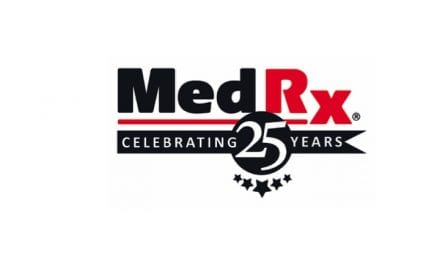The International Hearing Society (IHS) reports that, on February 21, the US District Court for the Eastern District of Michigan dismissed a lawsuit filed by the The Academy of Doctors of Audiology (ADA) regarding IHS’s Tinnitus Care Provider Certificate Program, which IHS describes as a comprehensive curriculum that focuses on tinnitus patient care involving physiology, psychology, measurement, management, and practice organization.
 On October 28, 2016, ADA filed a lawsuit seeking an injunction against the certificate, contending that that the new certificate is wrongfully being issued by IHS “to persons not legally permitted or professionally competent to provide such care” and exceeds hearing aid specialists’ scope of practice.” The ADA lawsuit said that hearing aid specialists are only legally permitted to provide tinnitus care in North Carolina, the only state which expressly listed them as providers. ADA also contended that the certificate would result in false or misleading advertising in violation of the federal Lanham Act and Michigan laws, since it believed the certificate falsely communicated to the public that the hearing aid specialist holding it would be professionally competent to provide tinnitus care.
On October 28, 2016, ADA filed a lawsuit seeking an injunction against the certificate, contending that that the new certificate is wrongfully being issued by IHS “to persons not legally permitted or professionally competent to provide such care” and exceeds hearing aid specialists’ scope of practice.” The ADA lawsuit said that hearing aid specialists are only legally permitted to provide tinnitus care in North Carolina, the only state which expressly listed them as providers. ADA also contended that the certificate would result in false or misleading advertising in violation of the federal Lanham Act and Michigan laws, since it believed the certificate falsely communicated to the public that the hearing aid specialist holding it would be professionally competent to provide tinnitus care.
On this basis, ADA sought a preliminary and a permanent injunction that would have prevented IHS from distributing Certificates to the hearing aid specialists who attended the Tinnitus Care Provider Certificate Program and passed the post-assessment (preliminarily during the pendency of litigation and then a permanent ban on distributing the Certificates altogether).
Subsequently, IHS filed briefs countering ADA’s position on the preliminary injunction, and also filed a Motion to Dismiss ADA’s claims. Last Tuesday (February 21), the Judge Sean F. Cox ruled in favor of IHS, ruling that ADA did not have standing or a viable legal claim. According to IHS, the Court concluded that ADA could not allege that any statement that IHS would make in the Certificates would be false or misleading. The Court recognized that most states are silent on whether hearing aid specialists can provide tinnitus management or not, but that silence is not construed as a prohibition. The Court further pointed out that ADA was “asking for an injunction in this case, under the guise of the Lanham Act, in order to have the Court usurp the function of the state licensing authorities to determine whether or not hearing aid specialists can provide tinnitus care. The Lanham Act does not confer such ‘regulatory authority on the federal courts’ (citation omitted).”
According to the IHS press release, the organization was thrown a curve ball by the ADA legal proceedings. “IHS applauds this favorable decision and will continue the mission of providing an educational opportunity to advance hearing healthcare professionals’ knowledge and skills through a comprehensive curriculum and assessment to best serve patients in effectively managing tinnitus,” said IHS Director Kathleen Mennillo, MBA, in the press statement. “The Court’s dismissal is a victory for sufferers of tinnitus.”
Upon being asked for a comment by The Hearing Review, ADA Executive Director Stephanie Czuhajewski responded via email, “While ADA is disappointed with the court’s decision and disagrees with it, we remain committed to protecting audiology’s scope of practice and the public. To that end, ADA is exploring all available options for legal recourse. ADA will continue to advocate for the delivery of high quality care for tinnitus patients, just as we have for the past 40 years.”






I was at this. it was rather interesting to see courtroom after the verdict was given. Interesting stuff.
My invention in the field of site of lesion detection has helped in the selection of hearing aids to counter the negative effects of cognitive deterioration, and helped with referrals to neurologists and vascular surgery. Its really a simple method and HAD’s can do it as effectively as any other professionals.
For info, please contact me at [email protected]
Jay Muhury.